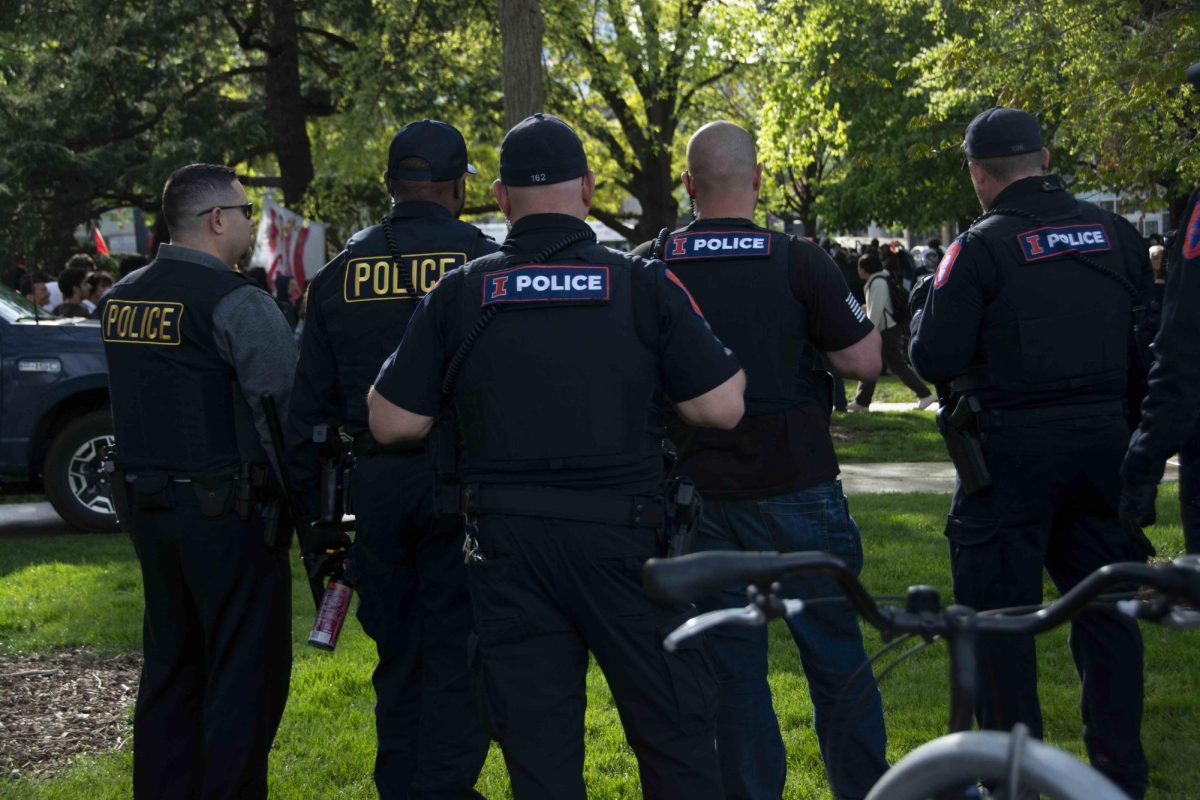The Urbana-Champaign Senate held a special informational meeting Monday at the Levis Faculty Center to discuss University President Michael Hogan’s recent proposals regarding possible administrative restructuring.
The U-C Senate, comprised of faculty, staff and students, focused on three main topics: the creation of a new vice president position, adding the title of ”vice president” to all University chancellors and the addition of the title “research” to the vice president for technology and economic development.
Joyce Tolliver, head of the senate executive committee, said she was “very appreciative” to discuss the administrative structure of the University, which she added was important for students and faculty to know.
“Changes at the top will affect all of us in the trenches,” Tolliver said.
Under these proposals, there would be a new vice president position in the University administration. The changes call for the creation of the vice president for health affairs, who would oversee the Chicago campus hospital, clinical programs, the faculty practice plan and Illinois Medical District as well as any partnerships with the University. The vice president for technology and economic development would also earn the portfolio of research and its various departments.
Get The Daily Illini in your inbox!
The three chancellors of each of the University campuses — Chicago, Springfield and Urbana — would also earn the titles of vice president. This move is meant to create more interaction between the three campuses and make sure the chancellors work directly under the president.
In order for these proposals to take effect, the senate must first make amendments to the school’s statutes and general rules. According to the University statutes, the only way to amend these are by either initiating the change in the senate or the Board of Trustees before they can be considered for a vote. This can happen only if the proposal has sought advice from the president, the senates and the University Senates Conference, which is composed of senates from all three campuses.
William Maher, chair of the senate Committee on University Statutes and Senate Procedures, said all this is necessary because of the time it takes to change amendments. He said it could take up to two years.
“Every individual word and every punctuation does have implications on the process,” Maher said.
The meeting concluded with audience members and senators asking questions they would like seen answered by Hogan, who would address them at the next meeting. These questions ranged from possible human resource restructuring to the future of the engineering department.
David Olsen, student body president, focused his attention on the change’s impact on students. He said he hopes Hogan will make the right decisions and also focus on the concerns of the students.
“Of most concern to the students is how will this proposal affect the value of their degree. I think it’s something that the students are thinking about,” Olsen said. “Will it impact the educational experience and how people see a degree from the Urbana campus?”
The meeting is the first of several in the following weeks about the proposals. Hogan will attend the next meeting on Oct. 18 at the Business Instructional Facility.




